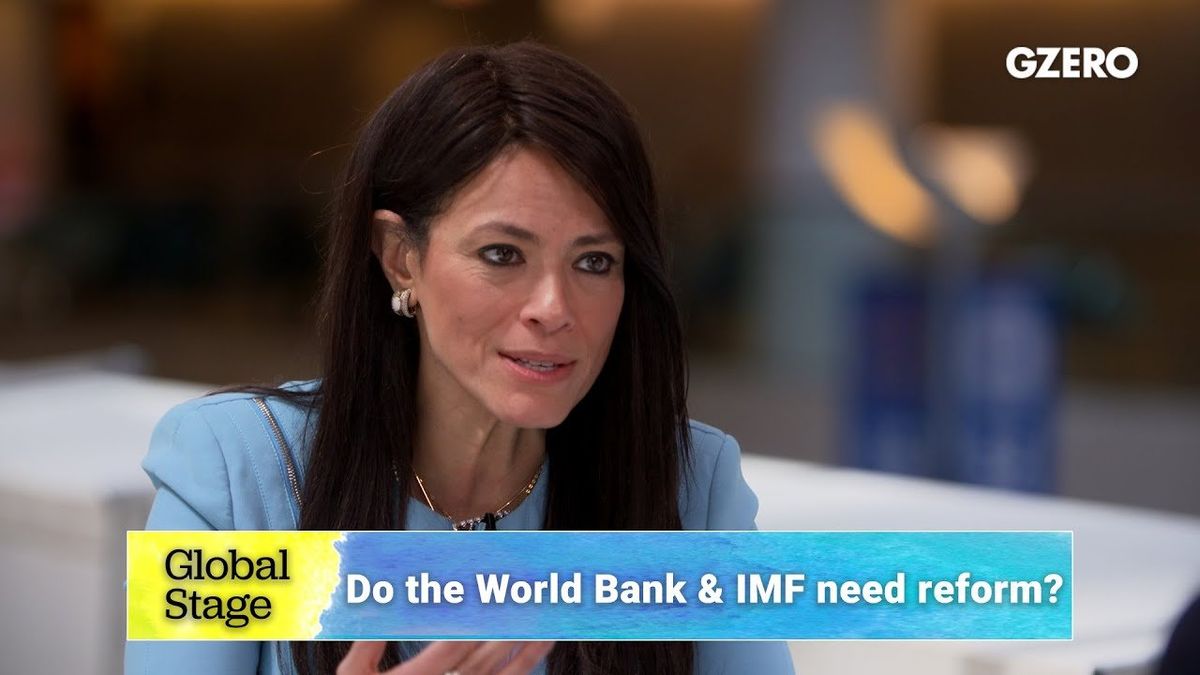Rania Al-Mashat, the Egyptian Minister of International Cooperation, tells GZERO's Tony Maciulis that the pandemic taught us how interconnected we truly are; no one nation can solve a problem as big as climate change, food insecurity, or geopolitical strife on its own. Al-Mashat makes the case for looking beyond the short term problems of inflation and toward longer-term solutions for the most pressing issues of our time.
In a conversation at the World Bank/IMF spring meetings in Washington, DC, she explains the key outcomes of last year's UN Climate Conference COP27, held in her home country, and what the road ahead looks like for climate financing and confronting the looming sovereign debt crisis.
Al-Mashat also states that in the coming months we will learn the new framework and path forward for the World Bank and IMF, institutions whose models have been both challenged and criticized during this historic period of global crises.

















